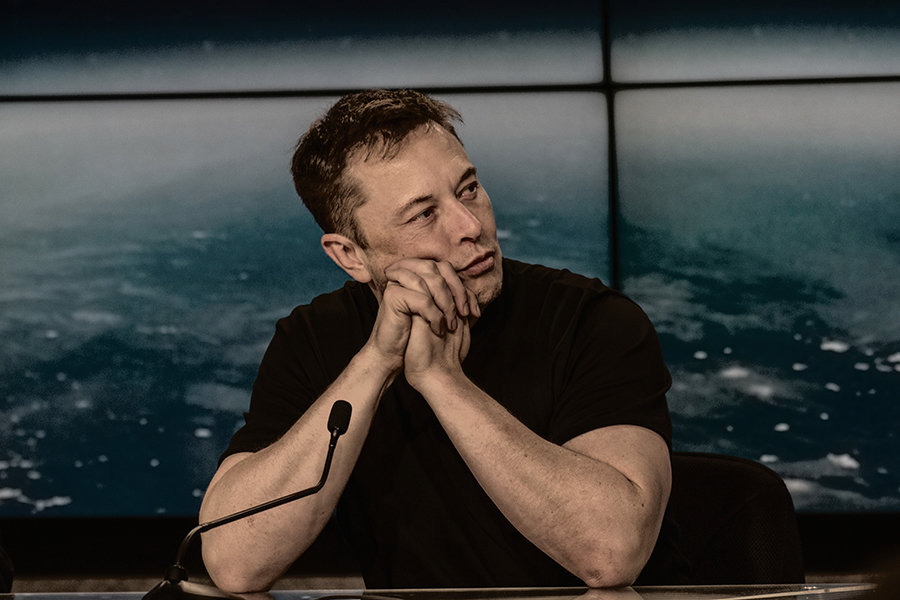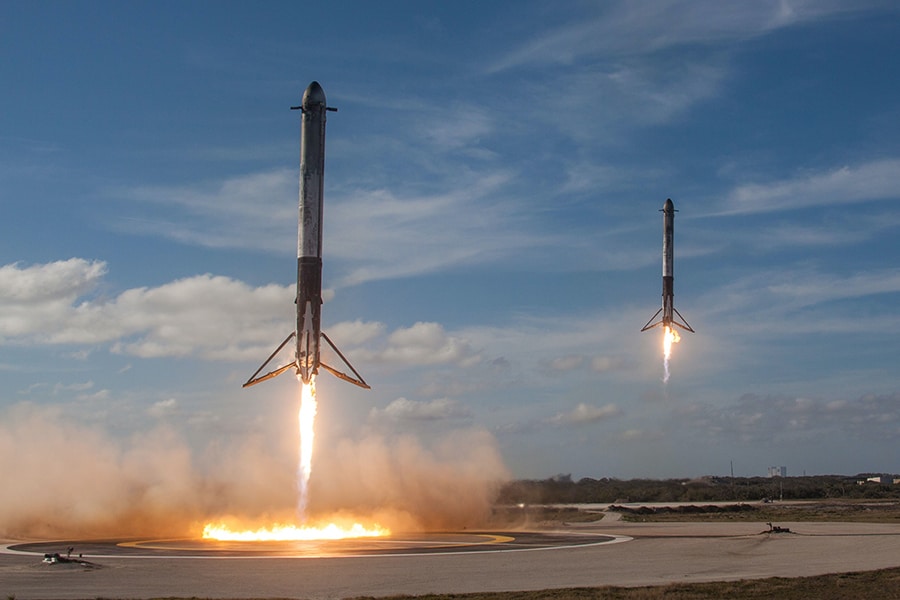To impact humanity, you need some special skills. Let’s dive into the 17 Elon Musk learning strategy keys and uncover what sets him apart.
Much of what I’m gonna share comes from what I’ve read about Elon, as well as nuggets of wisdom I’ve picked up from friends who’ve spent loads of time with him.
#1 A burning desire for learning
Loads of people study because they’re told to, like by a parent or professor. But only a few are driven by an unquenchable thirst for knowledge. Some even find reading books a downright blast.
I can still hear that age-old question echoing in my memory from my school days, “will this be on the test?” in engineering classes.
This question exposes the flaws in our education system. You only bother to learn material if you’re promised an “A” grade, so it’s no surprise you never learn anything truly meaningful this way, like mastering a jump shot.
Elon Musk’s early days with reading

Young Elon was a total bookworm. His younger brother Kimbal recalls how Elon would plow through books, reading for hours on end and sometimes finishing two in a day.
I believe reading is one of the best ways to escape the confines of everyday life. You can whisk yourself away from suburban monotony to the vastness of outer space. That’s when your imagination can truly soar.
That’s exactly what little Elon did. He devoured countless sci-fi books, his favorite being “Hitchhikers Guide to the Galaxy.” He once said about the book,
“It taught me that the tough thing is figuring out what questions to ask, but that once you do that, the rest is really easy.”
He was talking about life’s ultimate questions – the universe and everything. These books not only fueled Elon’s love for reading but also sparked ideas for future business ventures.
Elon Musk’s rocket-building journey with SpaceX
When Elon founded SpaceX, he gobbled up books on rockets, becoming a self-taught rocket engineer, without any formal degree.
When asked how he learned to build rockets, his response is simply, “I read books.” How badass is that?!
That’s why I truly believe that passionate self-study beats formal education any day. It’s also why I think engineering work experience is more valuable than formal schooling.
Plus, Elon’s a speed reader. The faster you read, the more data you can cram into your brain. So, work on boosting your reading speed without losing comprehension.
I’ve observed that the brightest minds often advance their learning through self-study rather than in traditional classrooms.
#2 Extreme laser focus
Elon’s a pro at juggling businesses in totally different industries, making it look like a breeze. Sure, he’s got a team of brilliant minds behind him, but those close to him say he still gets down and dirty with engineering work and dives deep into finances and business issues.
Think back to a time when you were super busy, with deadlines piling up and people breathing down your neck. You had to switch on your laser focus just to keep up, right?
Elon’s laser focus is permanently on, and without it, he couldn’t even handle a fraction of his daily workload. Like a well-oiled machine, he checks off his to-do list without getting stuck on any one problem. It’s constant boom boom boom no matter the chaos enveloping him.
So, when you’re learning something new, get into a zone to maximize your potential. Find a quiet spot to minimize distractions, and in no time, you’ll be able to focus even when chaos is happening all around you.
Mastering the art of signal over noise
Engineering problems are anything but simple. They’re a tangled web of variables that need intuition to untangle.
Take designing an induction motor, for instance. You can tweak design elements like the stator diameter, phase current, gross core length, and average flux density, then analyze the data. Through this, you’ll see how each variable affects the others in different ways. But only a few of them are the real drivers of efficiency in an induction motor.
As Elon Musk wisely puts it,
“Don’t waste time on stuff that doesn’t actually make things better.”
Reaching this level of understanding takes time and a firm grasp of the subject matter. But it’s essential when learning something new. You need to be able to cut through the bullshit and focus on what truly matters, or you’ll waste precious time.
#3 Dive into the fundamentals – embrace first principles thinking
Your teachers always hammered home the importance of understanding a subject’s fundamentals. Elon Musk takes this idea up a notch, saying,
“It is important to view knowledge as sort of a semantic tree — make sure you understand the fundamental principles, ie the trunk and big branches, before you get into the leaves/details or there is nothing for them to hang on to.”
Elon refers to this as first principles thinking. You dissect subjects into their most basic truths and build up from there.
Imagine you’re designing a cutting-edge space rocket. One of the first tasks might be to find a substitute for chemical propulsion systems. But you can’t make real headway without a solid foundation in physics.
Most people tackle problems using the analogy method – applying similar problems and solutions to their work. It’s a quick fix, and it works wonders for repetitive designs. However, this approach falls short when venturing into uncharted territory for a few reasons:
- There might not be a comparable problem to borrow from.
- Your solution will be limited by the quality of the copied solution.
Improving battery technology through first principles thinking
Let’s explore a battery example to further illustrate the power of first principles thinking, straight from Elon Musk himself. With a wealth of experience and a personal stake in batteries (the lifeblood of Tesla’s electric cars), Elon has plenty to share on this topic.
He explains how Tesla addressed the issue of sky-high battery pack costs for electric cars:
Somebody could say, “Battery packs are really expensive and that’s just the way they will always be… Historically, it has cost $600 per kilowatt hour. It’s not going to be much better than that in the future.”
With first principles, you say, “What are the material constituents of the batteries? What is the stock market value of the material constituents?”
It’s got cobalt, nickel, aluminum, carbon, some polymers for separation and a seal can. Break that down on a material basis and say, “If we bought that on the London Metal Exchange what would each of those things cost?”
It’s like $80 per kilowatt hour. So clearly you just need to think of clever ways to take those materials and combine them into the shape of a battery cell and you can have batteries that are much, much cheaper than anyone realizes.”
“You just have to think of clever ways to take those materials and combine them into the shape of a battery cell, and you can have batteries that are much, much cheaper than anyone realizes.”
Elon doesn’t mince words, calling the analogy way of thinking foolish. He asserts that relying on the past as a blueprint for the future will only yield stale, repetitive solutions.
Musk acknowledges that first principles thinking demands more mental energy. But it’s this mindset that’s catapulted us into the incredible technological age we now enjoy.
#4 Stay curious about everything to widen your learning horizons

A curious mind can lead you down many rabbit holes, helping you uncover new things and explore uncharted territory.
Elon Musk’s diverse empire speaks volumes:
- Tesla (automotive)
- SpaceX (aerospace)
- Paypal (internet/finance)
- Neuralink (brain-machine interface)
- Boring Company (mining/transportation)
As a kid, Musk voraciously consumed books on various subjects, from science fiction and philosophy to science, engineering, and business. As an adult, he honed in on specific areas like engineering, physics, and business.
By exposing himself to such a vast array of content, Musk gained a broader perspective, allowing him to view things from different angles. Had he only read books about rockets, he wouldn’t be the visionary he is today.
Limiting yourself to one subject will impede your potential. For example, you may be a nuclear engineering expert with a passion for video games, politics, and sports. So why not explore power engineering too, which interests you? You clearly have the ability to juggle various subjects.
Benefits of broadening your learning scope
Embracing a wider scope in your learning journey comes with a bunch of awesome perks:
- Gain a knowledge advantage over your peers
- Combine skillsets to develop a unique master skillset and perspective
- Solve a wider variety of problems
- Bridge gaps between industries
- Develop original ideas and solutions to problems
If you stick to just one subject, your problem-solving skills might turn a bit, well, bland. The most inventive engineers I’ve met not only have a solid grasp of technical stuff, but they’re also pros at construction and manufacturing. This combination always leads to the best designs.
Remember, you can learn all the theories in the world, but the designs you create in the office must be practical and transferable to the real world.
#5 Jump into the unknown and force new learning
Sure, staying in your comfort zone feels nice, but it won’t help you grow.
When you take a plunge into unknown waters, especially when others are counting on you, you’ll stumble upon all sorts of fascinating gems. But to stay afloat, you’ll have to learn to swim fast, or else you’ll end up looking silly and sinking.
Feeling stuck? This is the secret sauce you need.
Keep pushing yourself, and before you know it, you’ll be channeling your inner Elon Musk – fearlessly venturing into new industries without a second thought. After all, he’s confident that, given time, he’ll absorb all the know-how he needs to shine.
So go ahead, take a leap of faith and explore uncharted territories – you might just amaze yourself with what you can learn!
#6 Ask the tough questions
To dive into the unknown, try tossing out some challenging questions. They can open doors to incredible learning opportunities.
Just look at Tesla. Elon Musk wondered how to bring electric cars, a decades-old technology, to the masses. He made them both sleek and practical for everyday Americans. Why didn’t the car bigwigs do this sooner? Now they’re all scrambling to catch up.
Or take SpaceX’s rocket landings. These fiery beasts are basically fuel-stuffed missiles. Add in trajectory and finding the right landing spot, and you’ve got a doozy of a problem.
But Elon asked, why not land in the ocean? So he did just that, even touching down some rockets on floating drone ships. That move led to mastering control theory and machine learning for path planning.
The takeaway? Bold questions unlock next-level learning experiences. So go on, take risks and explore new frontiers.
#7 Befriend experts in your field
Let’s face it, we’ve all got limited time on this planet, so it’s a challenge to truly master every complex subject. But fear not – that’s where the experts come in!
Now, I’m not saying you should just kick back and let others do all the heavy lifting. It’s crucial to get a grip on the basics by yourself. But when you hit a snag or need some in-depth insights, turn to the pros. In engineering design, that last 1% can be the most confusing and difficult to wrap your head around.
This is a tactic mastered by Elon Musk. He seeks out the brightest minds in his fields of work and absorbs their knowledge like a sponge.
What might have taken an expert 15 years to develop, Elon can now grasp in a matter of days or weeks. Talk about efficiency!
And hey, thanks to the internet, you can connect with a gazillion experts from your cozy living room. So go on, reach out and tap into their treasure trove of knowledge.
#8 Flex those learning muscles
Sure, Elon benefits from working alongside some of the brightest engineering minds around, but he also dives headfirst into the nitty-gritty of his companies’ work. At SpaceX alone, he’s the Chief Engineer!
To juggle all those technical topics, he’s turned learning into a habit. Just like brushing your teeth before bed, he does it without even thinking. He knows that to keep his companies moving forward, he needs to keep learning. And for him, it’s a never-ending, but super fun, adventure.
Think of it like playing video games. When a fireball’s hurtling your way in Mario, you hit the jump button without a second thought. Likewise, when Elon Musk faces something new or mysterious, he flips into learning mode.
So don’t treat learning like a chore – make it second nature and an essential part of your life.
#9 Embrace your epic fails
Mistakes happen, especially when you’re pushing the envelope. So don’t let failures knock you down or make you think your learning is in vain.
Back when SpaceX was just starting out, it was on the verge of collapse. The Falcon 1 rocket bombed three times in a row, and they only had enough cash for a fourth launch. If that last attempt had flopped, SpaceX would have gone down in a blaze of glory – literally.
But Elon didn’t let that stop him. Even without a formal background in rocket engineering, he refused to quit. With each setback, the SpaceX team learned priceless lessons, proving that failure really is the best teacher in engineering.
Fast forward to today, and SpaceX is shaking up the aerospace industry while still being a privately owned company. Who would’ve thought that a company once teetering on disaster would become a shining example of innovation? It just goes to show that with enough grit, determination, and a willingness to learn from mistakes, anything is possible.
#10 Go all-out and push your limits

If you just follow the crowd, you’ll never unlock your full learning potential. Sadly, lots of people have pretty limiting beliefs when it comes to learning:
- You can only learn in a formal, structured setting, like school.
- If you’re an expert in one field, you’re stuck being a newbie in every other field.
- Your ability to learn is determined by your credentials, like the letters after your name or where you went to school.
I’ve heard engineers of all stripes say things like, “I’m an electrical engineer. How would I ever know anything about structural?
They assume their specialization prevents them from learning new things. But that’s just self-defeating! If you can memorize your fantasy football team’s stats, you can definitely learn the basics of structural engineering.
Elon Musk puts it bluntly:
“I do kinda feel like my head is full! My context switching penalty is high and my process isolation is not what it used to be.
I think most people can learn a lot more than they think they can. They sell themselves short without trying.”
So, dive into new subjects and broaden your knowledge. You might be amazed by how much you can learn. If it matters to you, you’ll find the time. There’s always room for more knowledge!
#11 Boost your memory and visualization skills
One major learning challenge is poor memory. We’ve all been there, right? Struggling to recall something, even after multiple attempts.
Did you know that Elon Musk’s mind works in a very visual way? He explains:
“It seems as though the part of the brain that’s usually reserved for visual processing – the part that is used to process images coming in from my eyes – gets taken over by internal thought processes…I can’t do this as much now because there are so many things demanding my attention but, as a kid, it happened a lot. That large part of your brain that’s used to handle incoming images gets used for internal thinking.”
Perhaps you’re not using your brain’s full capacity. Visualization is a powerful memory hack. Images stick in your mind more vividly than text. Maybe our brains process visuals and words differently…
Consider memory champs who can easily recall long number sequences or card decks. Most don’t have exceptional memories!
While some have a natural gift for visualization, everyone can improve with practice. So, flex those visualization muscles and watch your memory soar!
Nikola Tesla’s visualization ability
Elon Musk greatly admires inventor Nikola Tesla. Like Elon, Tesla had an incredible talent for visualization. He spoke about its power extensively:
“I observed to my delight that I could visualize with the greatest facility. I needed no models, drawings or experiments. I could picture them all as real in my mind… I am able to rapidly develop and perfect a conception without touching anything. When I have gone so far as to embody in the invention every possible improvement I can think of and see no fault anywhere, I put into concrete form this final product of my brain. Invariably my device works as I conceived that it should, and the experiment comes out exactly as I planned it.”
Though Tesla was naturally gifted, don’t be discouraged. With practice and dedication, you can enhance your visualization skills and reach new creative heights!
#12 Embrace an engineer’s mindset
When it comes to engineers and scientists, there are some key differences between the two.
Engineers focus on building and enhancing things, so when you’re diving into a subject, ponder how you can use that knowledge in real life. It’s the actual application of knowledge that’s truly impactful – simply knowing stuff won’t change the world!
Now, don’t get me wrong – science and knowledge are essential, and engineering wouldn’t have come as far as it has without the incredible work of scientists. But our focus here is on maximizing learning in every way possible, just like Elon Musk.
Take Elon’s dream of making humans a multi-planetary species, for instance. He made this a reality by blending knowledge from various fields like sci-fi, hard science, and engineering. This fusion allowed him to create SpaceX, a company that’s revolutionizing space travel and propelling the industry forward.
This mindset is why we’re enjoying such insanely comfortable lives today compared to just a hundred years ago. It’s all about applying what we know and constantly looking for ways to make a difference. So, go ahead, unleash your inner creative engineer, and make things happen!
#13 Share knowledge with others
Don’t isolate yourself, thinking you’ll get ahead by hoarding knowledge. Remember, you began this learning adventure by building on the wisdom of others – we’re all standing on the shoulders of giants!
That’s why Elon Musk is all about sharing his learning hacks with the world. Heck, he even made Tesla’s patents public! As he said,
“Technology leadership is not defined by patents.”
Our collective intelligence creates a “hive mind,” and every little bit helps move humanity closer to the singularity. Plus, you never know when you’ll need to learn about some cutting-edge tech from someone else. It’d be a real bummer if nobody wanted to share. So be generous with your knowledge and never forget the importance of learning from others.
#14 Be fearless and driven
Elon Musk’s legendary drive and fearlessness mean he’ll go all out to get the knowledge he needs, whether it’s hiring top engineering experts or exploring new research paths.
Elon never shies away from a challenge. He takes risks others wouldn’t even dream of, and when he’s proven wrong, he comes back even stronger.
This fearless approach has given him unique learning experiences nobody else can match. Unlike a university setting, where you’re often just rehashing other people’s experiences, tackling a problem head-on makes learning more meaningful and memorable. It all goes back to that Elon Musk interview question that could make or break you.
#15 Stay consistent
If you trace the path of Elon’s companies, they all point in one direction: advancing humanity to become a multi-planetary species. This vision goes back to his youth when he devoured sci-fi books and became captivated by space travel.
Elon’s unwavering commitment to this goal has propelled him to new heights of success. He’s always learning and applying his knowledge, pushing the limits of what’s possible.
Too many engineers stop learning once they graduate and start earning. They might pick up something new now and then because their boss made them, but that’s a surefire way to stay average and never realize your true potential.
#16 Be a doer

Don’t just be a spectator, absorbing knowledge like I mentioned in Tip #12. Instead, dive into action, as it’s the practical application of knowledge that truly empowers you. And hey, failure can be the best teacher, but if you never take a leap of faith, you’ll never learn from your mistakes.
Back in 2002, Elon Musk pocketed a cool $180 million when PayPal was sold to eBay. That very year, he founded SpaceX, which launched its first Falcon 1 rocket on March 24th, 2006.
The most jaw-dropping part of this journey is the sheer number of hurdles he faced. In the beginning, SpaceX experienced three rocket failures before finally succeeding on the fourth attempt. Each failure provided invaluable insights, helping the team refine and perfect their designs. Fast forward to now, and SpaceX is one of the industry’s most reliable and trusted rockets – all thanks to endless trials and errors.
#17 Break free from echo chambers
Don’t just hang out with people who constantly shower you with praise. It might feel great, but it won’t help you learn or create outstanding engineering masterpieces.
Elon Musk has never shied away from putting himself out there and welcoming criticism. He openly shares his thoughts and visions on Twitter.
Now, social media can be a treacherous landscape, with negativity lurking around every bend. But it can also be an amazing source of constructive criticism and fresh viewpoints.
In a nutshell, Elon is always on the lookout for new information and feedback to refine his work. And the more data you gather, the better you can optimize your output. Remember, most engineering failures occur when there’s not enough information available.
The Elon Musk learning strategy wrap up
The main takeaway here is to question the status quo of the education system and industry. Don’t just take everything at face value. Instead, think outside the box and explore alternative ways to learn.
Elon Musk’s success story is a shining example of the power of independent, higher-level learning. The fact that he doesn’t have formal education in his field only strengthens this point.
By adopting even a few of Elon Musk’s learning strategies, you’ll be well on your way to success. As you dive deeper into these tactics, you’ll see how they’re all intertwined, creating a formidable approach to learning and personal growth.
So, what do you think about these 17 Elon Musk learning strategy keys? Which ones resonate with you the most? What strategies do you use to optimize your own learning?
Featured Image Photo Credit: Daniel Oberhaus (image cropped)

I would love to learn more about engineering and space ,rockets and more I have worked in rubber molding fabricating ,farming,machining,tool and die and currently operating an excavator and learning electrical and many other fields but have always been interested in learning more and I learn better by watching others
You have the perfect mindset to excel in the field, given your interest level. Soak up as much knowledge as you can.
Almost all of them resonate with my spirit